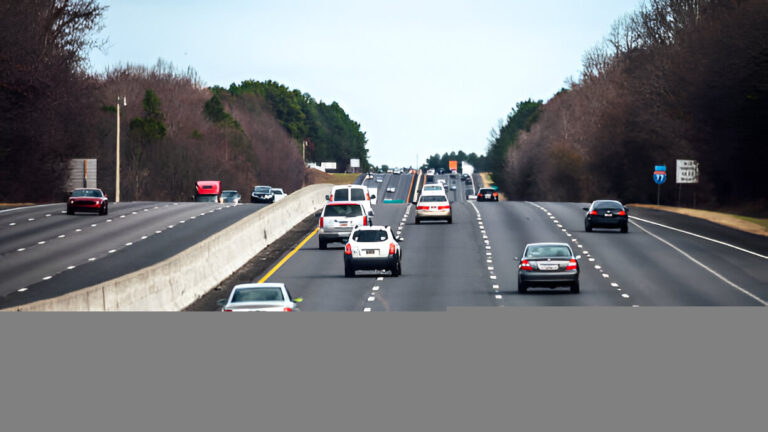Did you know that, according to the National Highway Traffic Safety Administration (NHTSA), speeding contributed to approximately 29% of traffic deaths in the US in 2023 and 2024?
If you are from North Carolina, you should understand the speeding laws to stay safe and to protect other road users. Speed limits vary a lot, from neighborhood streets to highways, which can lead to drivers getting expensive tickets.
Understanding North Carolina speeding laws is necessary to avoid violations and potential penalties for speeding.
Overview of Speed Limits in North Carolina
In North Carolina, there are speed limits according to the types of roads: 25 mph for residential areas; 35 to 45 mph for urban areas. Though, most highways would experience limits of about 55-70 mph, depending on the exact road.
Strictly obey signs that indicate maximum speeds allowed; exceeding those limits increases the risk of accidents and also fines or assigns points to the driver’s record.
Protecting everyone on the road is achieved by conforming to speed limits.
Types of Speeding Violations
In North Carolina, speeding violations are usually classified into three levels. The first is a common speeding violation, in which you are exceeding the limit by any amount. Next is the arguably grossly excessive speed that is usually over 15 mph. Because of the higher speed, it usually incurs heavier penalties.
The last type of charge is “reckless driving,” which applies when your speed endangers others, irrespective of the limit.
Understanding the different types of violations can help you know the penalties for each one, so you can avoid surprises and develop safer driving habits.
Penalties for Speeding Offenses
Speeding violations can bring penalties that affect your driving record and financial standing. The North Carolina laws on speeding penalties depend on the seriousness of the case.
Minor speeding offenses usually result in small fines and one or two points on your license. But if you go way over the speed limit, the fines and penalties can increase, and you could even risk having your driver’s license suspended.
Getting points on your license might require you to take one or two mandatory driver’s education courses. Your car insurance costs will also likely go up. This is why it’s necessary to follow the speed limits.
You don’t want to face bigger penalties the third time, so pay attention to your driving to stay safe.
Speed Limit Enforcement Practices
Many drivers may think they can speed, but law enforcers have tricks against the offenders.
Radar and laser are commonly used tools for measuring speed. They let an officer check a speeding vehicle’s speed from a distance. The officer might use a marked or unmarked patrol car to surprise other speeders.
Public service announcements about speed limit enforcement campaigns will remind everyone that these campaigns happen regularly in busy areas. Some places also have automatic speed cameras that take pictures of cars driving too fast.
Such methods reduce offenses related to subjective speeding and encourage all users of roads to embrace safe driving behavior. It is wiser to avoid getting caught by these enforcement strategies because a ticket can be expensive.
Tips for Safe Driving and Compliance
Your driving habits have a big impact on safety and following road laws. Always pay attention to your surroundings, including speed limit signs. Wear your seatbelt, and make sure everyone else in the car does too.
Avoid distractions and put the phone away. Reduce your speed and create a large buffer from other vehicles on the road whenever the weather is unfavorable for driving. Safety should be the priority when setting speed limits because it’s better to be safe than to regret it later.
Always try to remain calm and be more patient, especially at peak hours. Following these tricks will guarantee your safety as well as that of others on the road.

